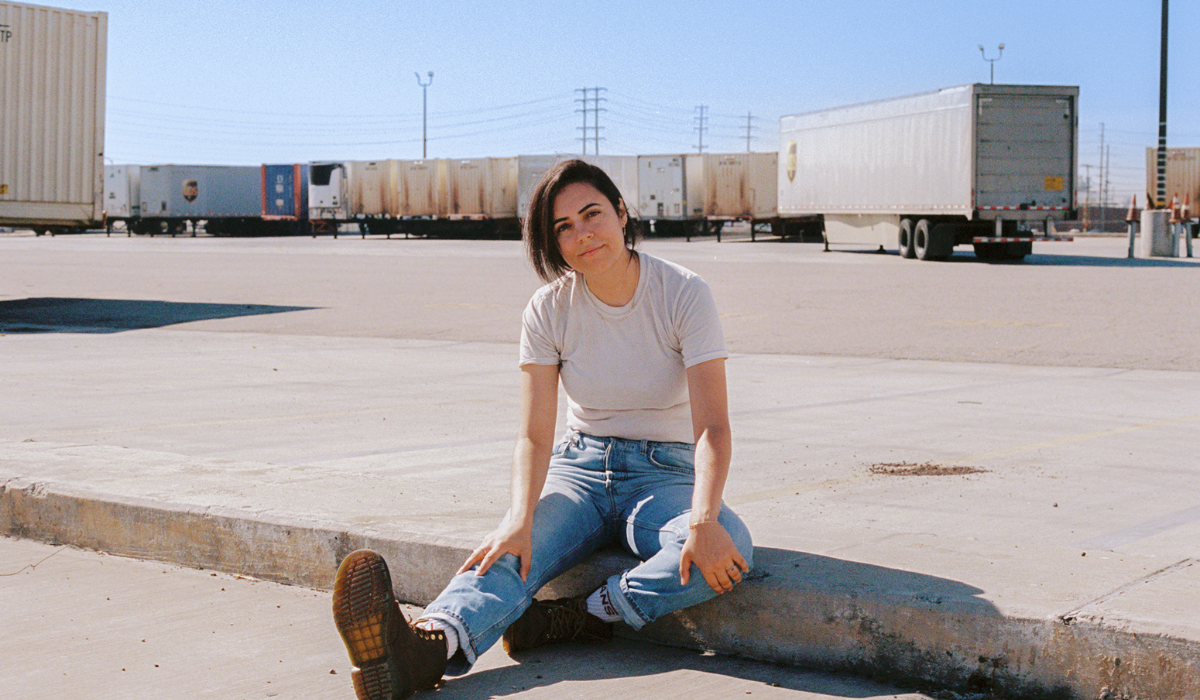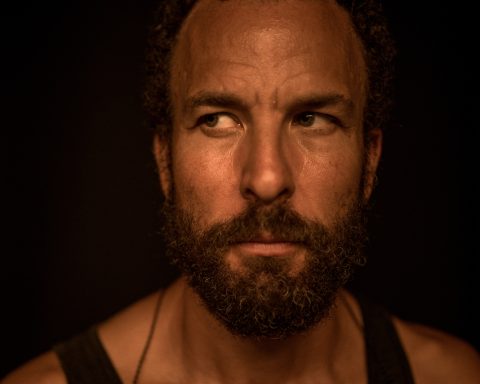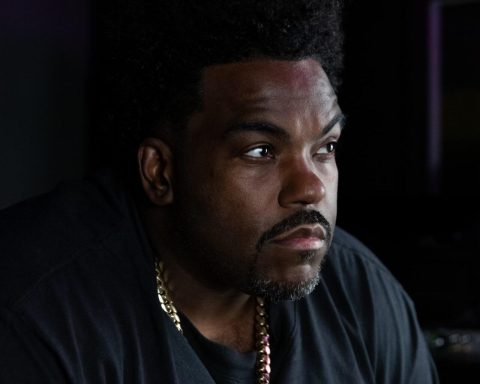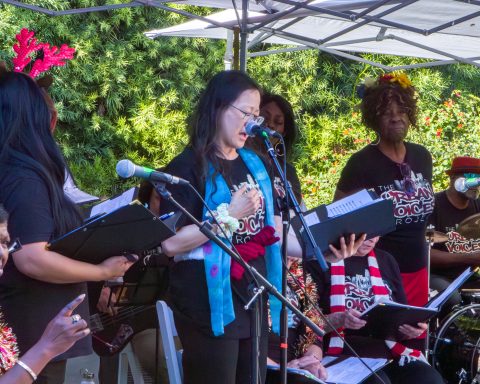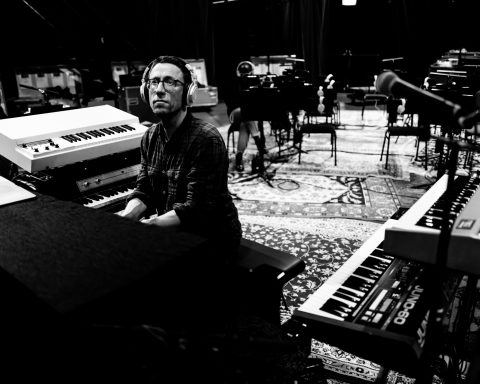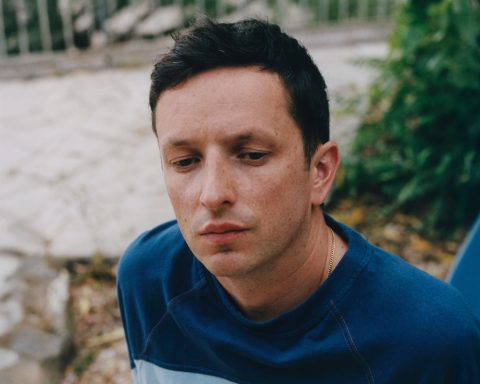A student of Prince sound engineer Susan Rogers, Sarah Tudzin learned from the best when embarking on her career behind the mixing desk. To demonstrate her skills, the LA-based songstress formed the indie rock project illuminati hotties in 2018, telling the world that singing was her punishment for wanting to put music out. Credits for her work on albums by Slowdive and Porches helped Tudzin earn a co-production role on last year’s boygenius album, The Record. The success of the LP and subsequent Grammy nominations and awards signify her arrival as one of the hottest emerging producers on the indie pop scene today.
Becoming a Recording Engineer
When did you decide you wanted to become a recording engineer, and what steps did you take to achieve that?
I went to college to play drums but quickly lost interest in being in the practice room alone for hours. Then I got involved in a production and engineering program at college and suddenly had no problem being alone in the studio. All the pieces just made sense in my brain. I wanted to be more creatively involved than just being a band member, but I wasn’t sure if I had the skills or even understood the whole technical aspect of making records. Once I had access to studio spaces and was able to get into the gear, the puzzle pieces fell into place.
Did you have a mentor?
When I was in school, I took a lot of classes with Susan Rogers, who was Prince’s recording engineer. I hope she won’t feel weird about me saying this, but her path towards making records was atypical from other producers and engineers we know and love. So it was really special to have her as my engineering hero. Once I graduated, I started working with Will Wells, a fantastic producer and writer. After six months, he left to go on tour, and I connected with Chris Coady, who’s made many legendary records in the indie rock world. I was his engineer for three and a half years, and he’s still a mentor to me.
“I got involved in a production and engineering program at college and suddenly had no problem being alone in the studio. All the pieces just made sense in my brain.”
Did Susan give you any Prince anecdotes?
Oh yeah, tons. But the main takeaway was how passionate Prince was about his craft and how much time he dedicated to it. He seemingly couldn’t exist without working on music all the time. And Susan was at his right hand, putting the hours in to get to the best from his most creative moments.
Proving a Point
Did making the first illuminati hotties album, Kiss Yr Frenemies, give you the idea to produce for others?
I was young and new, and most of my credits came from working with Chris or Will, so I wanted to point artists to something I’d made to see if they’d like to get together in the studio. I created the band as a vehicle to flex my skills as an engineer, producer, and songwriter, but it was fun to hit the road and perform the songs, which would take on a life of their own.
Gear Hoarding
When did you start collecting your own gear as opposed to using whatever was available in various studios you worked at?
Hoarding electronic equipment has been a lifelong process. I started playing drums very young, and that’s a great way to amass a huge pile of garbage. I’ve had a snare drum for fifteen years that’s still following me from place to place, but as soon as I started getting into the studio world, I began collecting equipment and trying to scale up some items I’ve had to save up for. Other times, I’ll pick up a keyboard at a thrift shop on tour. But I still don’t have a fiftieth of the gear that some people get to work with daily.
"I created the band as a vehicle to flex my skills as an engineer, producer, and songwriter, but it was fun to hit the road and perform the songs."
As you primarily work with indie pop or rock bands, do the technologies you use lean towards that style of music?
BOSS pedals are a regular feature of my pedal board, and I got the new Roland SP-404 sampler last year and love it. I only got it to goof around on, not thinking I’d use it for anything other than making beats for fun, but the effects on it are so cool that I ended up using it to parallel process drums and create little samples to screw up and throw back into Pro Tools. I’ve also had this old Roland JC-120 amplifier for a long time now. It’s from the ’80s, and I’ve had the speaker cones replaced, but it’s a killer amp to send bass, guitar, and keys through, and I’ve used it on so many records.
Transcendent Qualities of the JUNO-60
What about the JUNO-60 synth do you find relevant to your work?
Lots of synths have eight squillion buttons, knobs, and faders, which can be intimidating, but with the JUNO, it’s easy to find a good, high-quality starting place quickly. I’ve studied synthesis at a moderate level, so I more or less know how to get the sound I’m imagining, but artists come in all the time who don’t have that knowledge but can still use the JUNO to find something exciting to them. The JUNO-60 sneaks its way into every song because it’s so easy to pull up a beautiful sound and change the scenery.
“The JUNO-60 sneaks its way into every song because it’s so easy to pull up a beautiful sound and change the scenery.”
You once mentioned trying to circuit break a TR-505 drum machine to get Aphex Twin-type sounds—sounds you’re not typically associated with.
I’m often trying to make sounds as an exercise for the genre I’m in, but I’m always looking for gear candy and new weird stuff that’ll get people’s attention in a song. It’s nice to have a large palette of colors to play with, and if somebody’s asking or hearing something that I’m not, sometimes it’s fun to reach for a tool that does something weird and decide whether it’s closer or further to what they want.
Would you like to produce or engineer for a purely electronic band?
Oh, I’d love that. There’s so much way outside of pop or indie rock that excites and inspires me, so if an electronic group wants to come through, that would be amazing. Being a student of records allows me to be a chameleon, but I don’t think there’s any genre of music that I’d be out of my depth in.
Grammy Nomination
You were nominated for several Grammys for your production work on last year’s boygenius LP, The Record. Is that an endorsement of everything you’ve worked towards?
In some ways and others, it’s hopefully one step in a long career of making records that people are inspired by. The Grammys are such an interesting thing because it’s putting a veil of objectivity on subjective art. But it’s also special to be honored by my peers. I’m also excited for the boygenius team because this is what they’ve been building towards since the record came out, and it’s fun to see your friends accomplish their dreams.
Just being nominated is likely to propel your career as a producer. Do you have a bucket list of artists that you’d love to produce or engineer for?
I don’t have a list of names per se, but there are lots of pop people that I’d love to get in a room with. I’m fascinated by the Johnny Cash cover of Trent Reznor. I would love to have a legacy artist come to me one day. We live in a period where a lot of the people who essentially invented the recording process are reaching the end of their careers but are still here. It’s really special to still be on earth with someone like Paul McCartney, who invented panning with the Beatles, and it’s crazy to think we could potentially walk into the same studio.
"I’m fascinated by the Johnny Cash cover of Trent Reznor. I would love to have a legacy artist come to me one day."
illuminati hotties
A little bird tells me you’re working on a fourth illuminati hotties album.
Every time I work on a project, it adds to my creative lexicon, so when I return to making a hotties record, it’s exciting and nerve-wracking because it could go anywhere. I took a lot of the new songs to another mentor of mine, producer John Congleton, who’s been able to put his spin on them and break down many barriers I had from my own production style. I’m hoping it will come out later this year.

